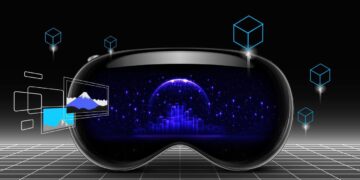In recent years, the world has witnessed a groundbreaking transformation brought by artificial intelligence (AI). No longer a futuristic fantasy, AI is now deeply integrated into our daily lives, industries, and even decision-making systems. One of the most profound shifts is the rise of AI-driven agentic impact—the ability of AI systems to operate with autonomy and influence outcomes once reserved solely for human agency.
This article explores the evolving concept of agentic AI, how it is reshaping industries, its ethical implications, and what it means for humanity’s future. From smart assistants to autonomous vehicles, AI agents are not just tools—they are becoming decision-makers, collaborators, and in some cases, competitors in human-dominated spaces.
What Is Agentic AI?
Agentic AI refers to artificial intelligence systems that can initiate actions, set goals, adapt to dynamic environments, and learn from outcomes—often without direct human instruction at every step. These AI systems demonstrate a degree of autonomy and problem-solving capacity that mirrors human agency.
Unlike traditional rule-based programs, agentic AI can:
Set internal goals based on environment and feedback
Make decisions independently
Adapt to new data in real-time
Learn from experience through reinforcement or deep learning
Agentic AI does not imply consciousness or emotion, but rather a capacity to act in pursuit of defined outcomes—sometimes creatively or unpredictably.
Key Characteristics of Agentic AI
A. Autonomy
AI agents act without step-by-step human input, reducing reliance on manual control.
B. Goal-Directed Behavior
Agentic systems are trained to pursue outcomes, often balancing multiple variables and constraints.
C. Adaptive Learning
They use algorithms like reinforcement learning, allowing continuous improvement from feedback.
D. Environmental Interaction
These systems sense and respond to changes, adjusting strategies in real time.
E. Decision-Making Capability
Agentic AIs evaluate options and execute actions with increasing sophistication.
Examples of Agentic AI in Action
A. Autonomous Vehicles
Self-driving cars analyze real-time data from sensors, GPS, traffic, and other vehicles to make driving decisions. They follow traffic laws, avoid hazards, and reroute as necessary.
B. AI-Powered Virtual Assistants
Systems like ChatGPT, Google Assistant, and Siri can perform tasks proactively, such as rescheduling meetings, adjusting reminders, and answering nuanced questions.
C. Financial Trading Bots
These AI agents operate with high-frequency algorithms to make trading decisions within milliseconds, adapting to market trends in real time.
D. Healthcare Diagnosis Tools
AI systems can now interpret imaging results (e.g., MRIs, CT scans) and even suggest treatment plans, acting semi-autonomously with minimal supervision.
E. AI in Robotics
Robots in manufacturing or service industries can now detect anomalies, repair errors, and navigate complex environments independently.
The Evolution from Tool to Collaborator
Traditionally, AI was viewed merely as a tool—an extension of human intention. However, agentic AI represents a shift toward collaborative intelligence. These systems are no longer passive executors but proactive participants in processes.
For example:
In creative industries, AI co-authors music, writes articles, and generates art based on user prompts and real-time feedback.
In scientific research, AI helps formulate hypotheses, analyze experimental data, and suggest new directions.
In enterprise software, AI suggests business optimizations without being explicitly told what to do.
Benefits of Agentic AI
A. Increased Efficiency
Agentic AI can complete tasks faster and more accurately than humans, especially repetitive or data-heavy operations.
B. Scalability
Once trained, AI agents can operate simultaneously across thousands of environments without fatigue.
C. Cost Reduction
Organizations save money by automating tasks that previously required large teams or resources.
D. Innovation Acceleration
AI-driven discoveries in materials science, pharmaceuticals, and climate modeling are pushing boundaries at record speed.
E. Improved Personalization
Agentic AI tailors user experiences based on preferences, behavior, and history—seen in e-commerce, education, and entertainment.
Risks and Ethical Concerns
Despite the promise, agentic AI also introduces serious risks and challenges that must be addressed.
A. Loss of Human Oversight
When AI makes autonomous decisions, it can become difficult to track who is responsible for errors or unintended consequences.
B. Bias and Fairness
AI agents learn from data—which may include historical biases. This can result in discriminatory outcomes, especially in hiring, lending, or law enforcement.
C. Manipulation and Misinformation
Autonomous bots can spread fake news, create deepfakes, or manipulate social media discourse without direct human involvement.
D. Job Displacement
As agentic AI automates more roles, especially white-collar jobs, massive economic shifts may occur.
E. Existential Risks
If highly agentic systems surpass human cognitive capabilities without aligned goals or control mechanisms, they could pose fundamental threats to humanity.
The Role of Human-in-the-Loop Systems
To mitigate these risks, many experts advocate for human-in-the-loop (HITL) approaches. This ensures that while AI acts autonomously, humans remain the ultimate decision-makers for critical tasks.
HITL combines:
AI-driven speed and scale
Human judgment and values
A feedback loop to maintain accountability
This hybrid model is already used in:
Autonomous drone operations
Medical diagnostics
Automated legal document review
AI content moderation
Building Responsible Agentic AI
The key to safe and beneficial AI development lies in governance, transparency, and alignment.
A. Ethical Frameworks
Governments and private institutions must create global ethical standards for autonomous AI behavior.
B. Explainability
Agentic AI must provide clear reasons behind decisions to earn human trust.
C. Regulatory Compliance
Legal frameworks should evolve to keep pace with AI’s capabilities and protect public interests.
D. Bias Audits and Data Integrity
Routine checks are necessary to ensure training data and decision-making processes are fair and accurate.
E. Value Alignment
Efforts must focus on ensuring AI goals align with human values—this is especially crucial for general-purpose AI agents.
Future of Agentic AI: Towards Artificial General Intelligence?
As AI agents grow more capable, some researchers believe we are approaching Artificial General Intelligence (AGI)—machines that can learn and reason across any task a human can do.
While AGI remains speculative, the steps toward it involve:
Better world modeling by AI agents
More robust memory and reasoning frameworks
Integration of common sense into decision-making
Improved alignment with complex human goals
The journey toward AGI raises profound questions:
Will humans remain the top decision-makers?
Can we ensure AI remains beneficial?
What will collaboration between humans and AI look like in 2050?
Conclusion: Shaping Our Future with AI
Agentic AI is no longer science fiction. From smart homes to space exploration, AI agents are becoming central to how we live, work, and think. The rise of agentic systems challenges traditional ideas about autonomy, creativity, and intelligence.
If developed responsibly, agentic AI can empower humanity, unlock new frontiers, and solve problems once deemed impossible. But without careful oversight and alignment, it may introduce risks we are not prepared to handle.









